11 Best Herbal Creams For Edema
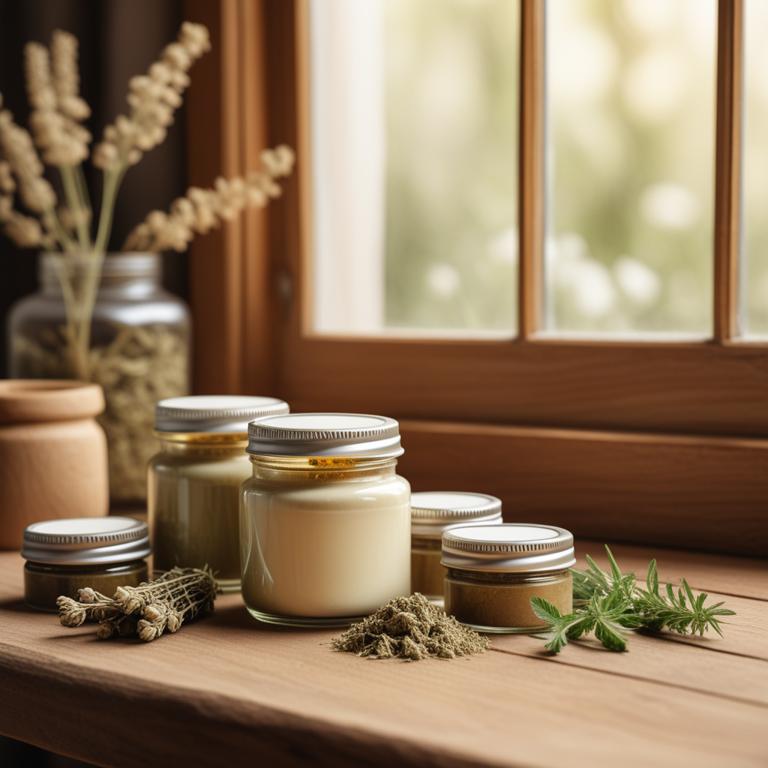
Herbal creams for Edema are topical creams that contain natural ingredients derived from plants, which are used to treat and alleviate the swelling associated with edema.
These creams offer numerous benefits, including reducing inflammation, promoting lymphatic drainage, and improving circulation, ultimately leading to a reduction in edema symptoms.
Examples of herbal creams used to treat edema include creams containing arnica, calendula, and ginkgo biloba, which are known for their anti-inflammatory and antioxidant properties.
Additionally, creams containing aloe vera, chamomile, and witch hazel are also effective in soothing and calming the skin, making them ideal for treating edema, while creams containing horse chestnut and butcher's broom help to reduce swelling and improve circulation.
According to "Complementary therapies in medicine", creams for edema may be effective in reducing edema volume, as herbal treatments, including topical creams, have been reported to be effective in reducing lymphedema burden and edema volume in studies.
Below there's a list of the 11 best herbal creams for edema.
- 1. Avena sativa creams
- 2. Arnica montana creams
- 3. Aloe barbadensis creams
- 4. Ruscus aculeatus creams
- 5. Echinacea purpurea creams
- 6. Vaccinium myrtillus creams
- 7. Calendula officinalis creams
- 8. Hamamelis virginiana creams
- 9. Urtica dioica creams
- 10. Hypericum perforatum creams
- 11. Silybum marianum creams
Also you may be interested in...
TODAY'S FREE BOUNDLE
Herb Drying Checklist + Herbal Tea Shopping List + Medicinal Herbs Flashcards
Enter you best email address below to receive this bundle (3 product valued $19.95) for FREE + exclusive access to The Aphotecary Letter.
$19.95 -> $0.00
1. Avena sativa creams
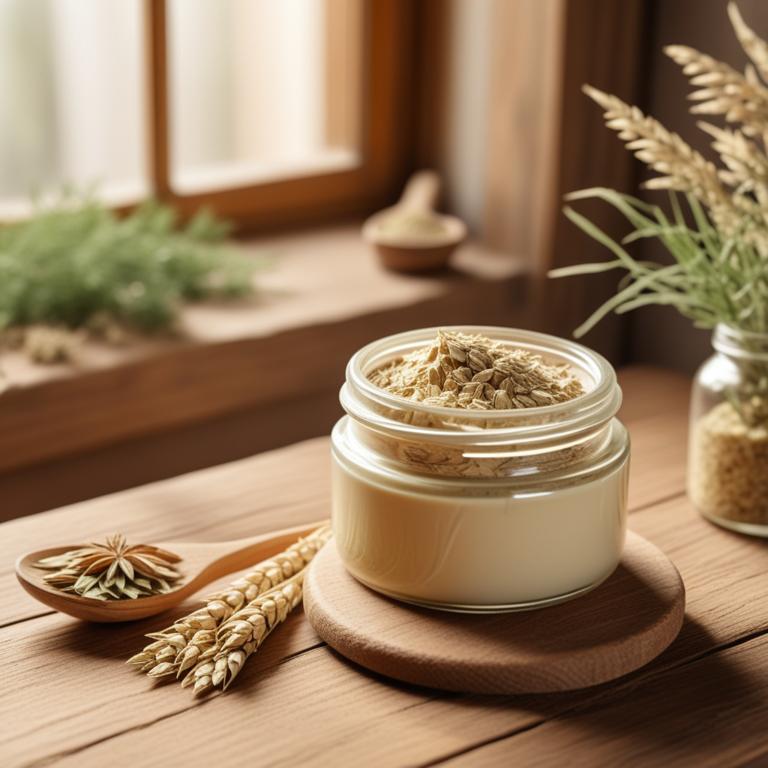
Avena sativa creams, derived from the oat plant, have been found to effectively treat edema, a condition characterized by swelling caused by excess fluid retention.
The anti-inflammatory and diuretic properties of Avena sativa creams help to reduce swelling and promote the removal of excess fluids from the body, thereby alleviating the symptoms of edema.
The bioactive constituents, including avenanthramides and avenacosides, present in Avena sativa creams, are responsible for their therapeutic effects, as they help to improve blood circulation and reduce inflammation.
The benefits of using Avena sativa creams to treat edema include reduced swelling, improved mobility, and enhanced overall well-being, making it a popular natural remedy for this common condition.
2. Arnica montana creams
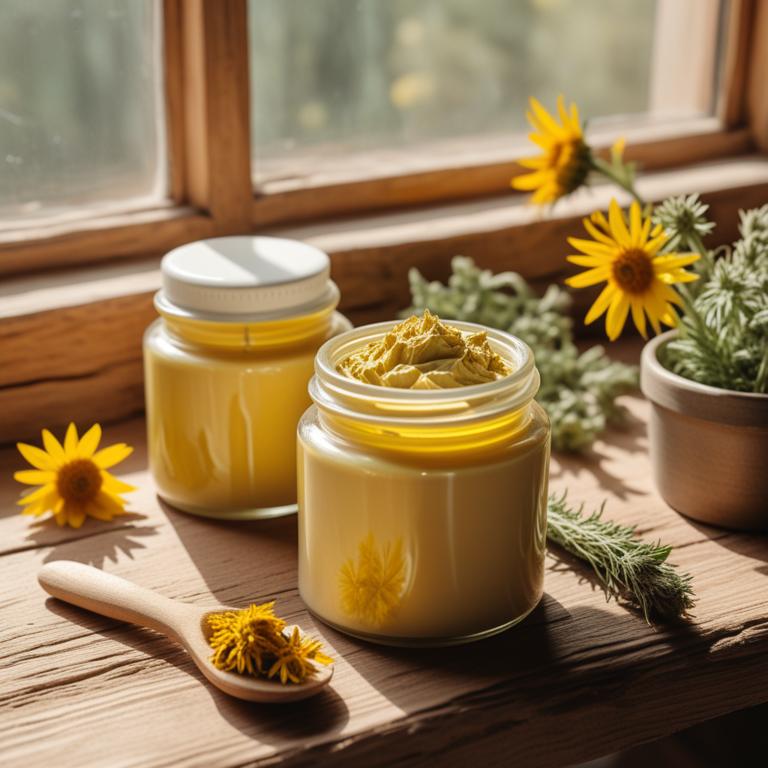
Arnica montana creams have been traditionally used to treat edema, a condition characterized by swelling due to excess fluid accumulation in the body.
The anti-inflammatory properties of Arnica montana creams help to reduce swelling and alleviate pain associated with edema.
The bioactive constituents of Arnica montana creams, including flavonoids, phenolic acids, and sesquiterpene lactones, contribute to its anti-inflammatory and analgesic effects, which help to treat edema.
The benefits of using Arnica montana creams to treat edema include reduced swelling, pain relief, and improved mobility, making it a popular natural remedy for this condition.
Related Study
According to "Plants (Basel, Switzerland)", Arnica montana creams for edema may be effective in alleviating the manifestations of acute inflammation, such as edema, due to the superior anti-inflammatory activity of the whole plant (Arnicae planta tota) compared to the flowers (Arnicae flos) alone.
3. Aloe barbadensis creams
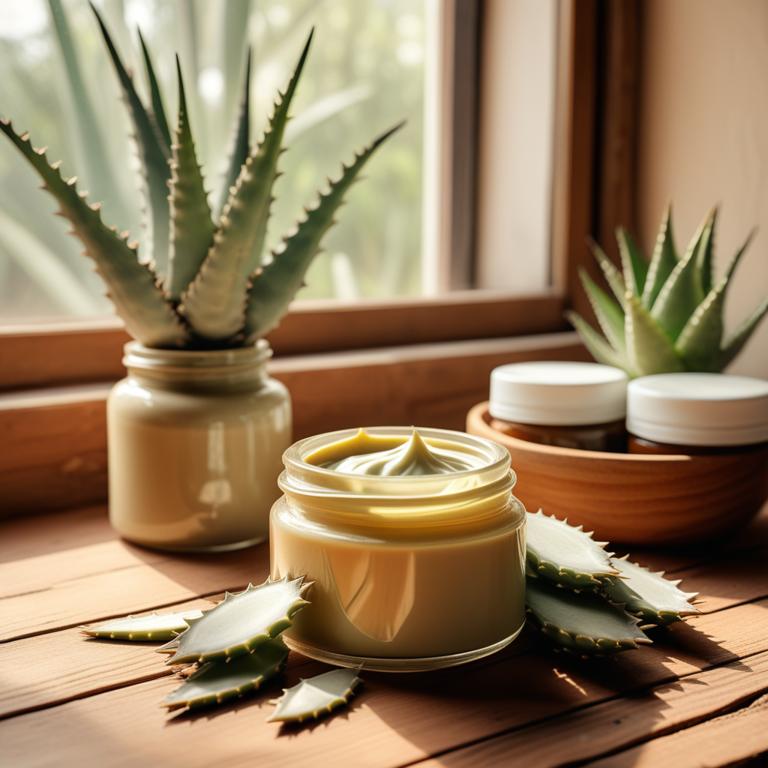
Aloe barbadensis creams have been widely used to treat edema, a condition characterized by swelling due to fluid retention, thanks to their anti-inflammatory, antimicrobial, and antioxidant properties.
The soothing and calming effects of Aloe barbadensis creams help to reduce inflammation and alleviate pain associated with edema.
The bioactive constituents, including aloin, aloe-emodin, and vitamins A and E, work together to promote blood circulation, reduce fluid accumulation, and enhance the removal of excess fluids from the body.
Regular use of Aloe barbadensis creams has been shown to provide relief from edema symptoms, improve skin health, and reduce the risk of complications associated with this condition.
Related Study
According to the study, Aloe barbadensis creams for edema showed a maximum of 97% inhibition of edema when applied topically.
4. Ruscus aculeatus creams
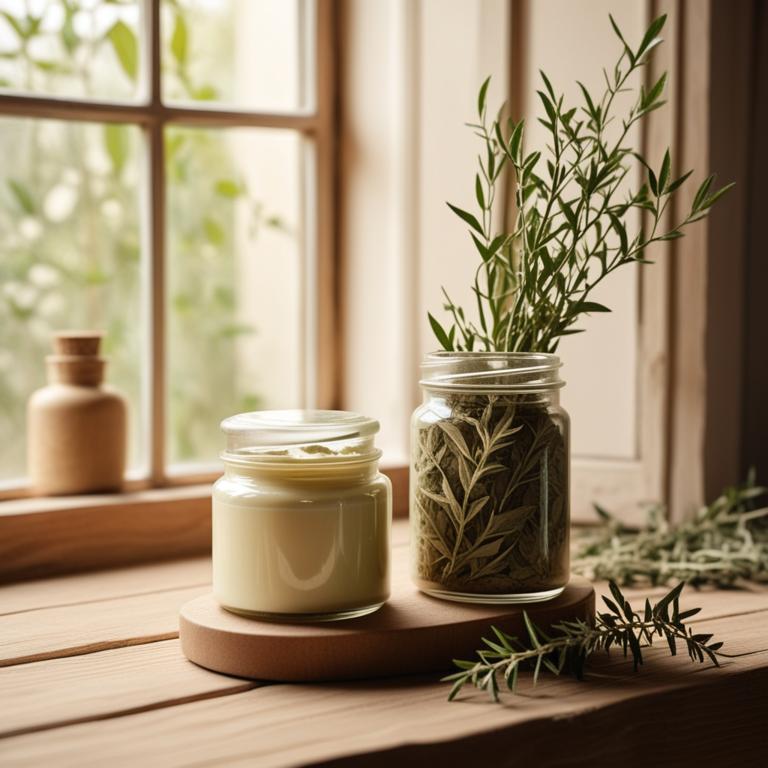
Ruscus aculeatus creams have been traditionally used to treat edema, a condition characterized by swelling caused by excess fluid retention.
The herbal preparation's diuretic and anti-inflammatory properties help to reduce fluid buildup and alleviate symptoms associated with edema.
The bioactive constituents, including flavonoids and alkaloids, contribute to its therapeutic effects by promoting the removal of excess fluids and reducing inflammation.
Regular use of Ruscus aculeatus creams can provide relief from edema symptoms, making it a valuable natural remedy for managing this condition.
Related Study
According to "Arzneimittel-Forschung", Ruscus aculeatus creams for edema have been found to be effective in reducing leg volume changes and alleviating symptoms such as heavy tired legs and sensation of tension in patients with chronic venous insufficiency.
5. Echinacea purpurea creams
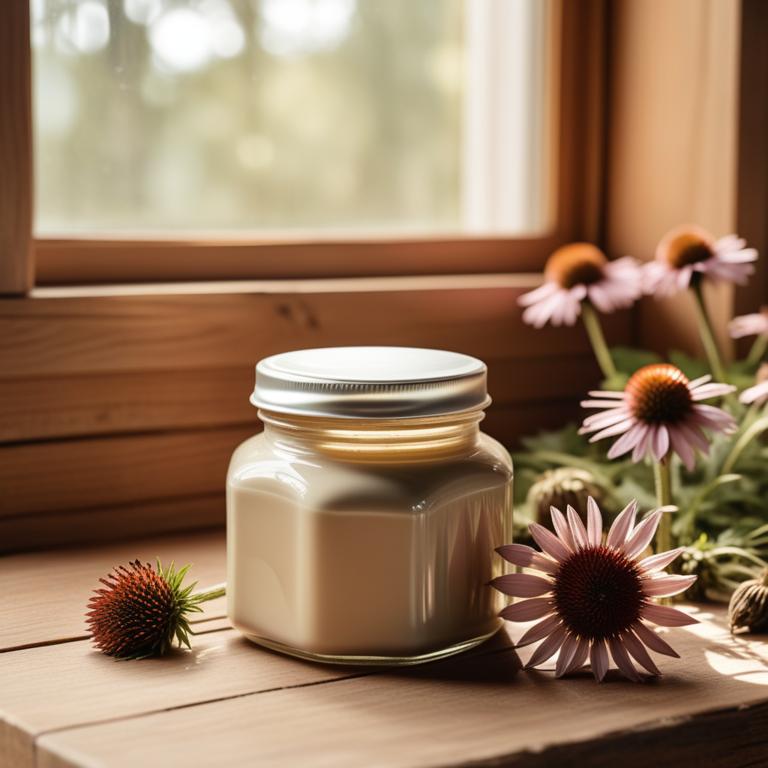
Echinacea purpurea creams are a popular herbal preparation used to treat edema, a condition characterized by swelling and fluid retention in the body.
The anti-inflammatory and antioxidant properties of Echinacea purpurea creams help to reduce inflammation and promote healing in the affected areas, thereby alleviating the symptoms of edema.
The bioactive constituents of Echinacea purpurea creams, including alkylamides, glycosides, and phenolic acids, work together to reduce swelling and improve circulation, helping to treat edema effectively.
The benefits of using Echinacea purpurea creams to treat edema include reduced inflammation, improved circulation, and enhanced overall well-being, making it a natural and effective alternative to conventional treatments.
6. Vaccinium myrtillus creams
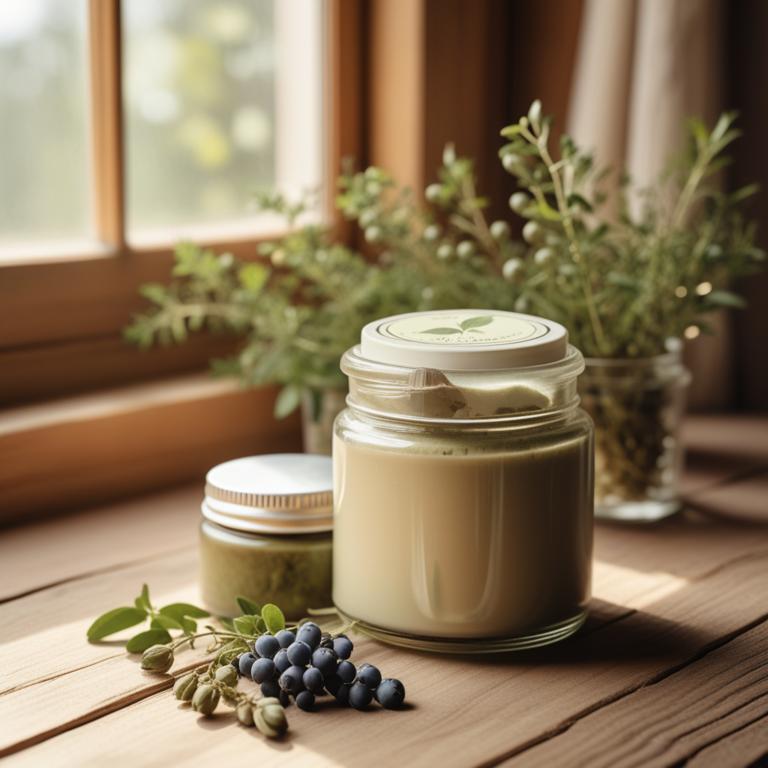
Vaccinium myrtillus creams, also known as bilberry creams, have been traditionally used to treat edema, a condition characterized by swelling due to fluid accumulation in the body.
The anti-inflammatory and antioxidant properties of Vaccinium myrtillus creams help to reduce swelling and promote the removal of excess fluids from the body.
The bioactive constituents of Vaccinium myrtillus creams, including anthocyanins and flavonoids, have been found to contribute to their therapeutic effects by inhibiting the production of pro-inflammatory enzymes and improving blood vessel function.
The use of Vaccinium myrtillus creams to treat edema has been found to provide numerous benefits, including reduced swelling, improved circulation, and enhanced overall well-being.
7. Calendula officinalis creams
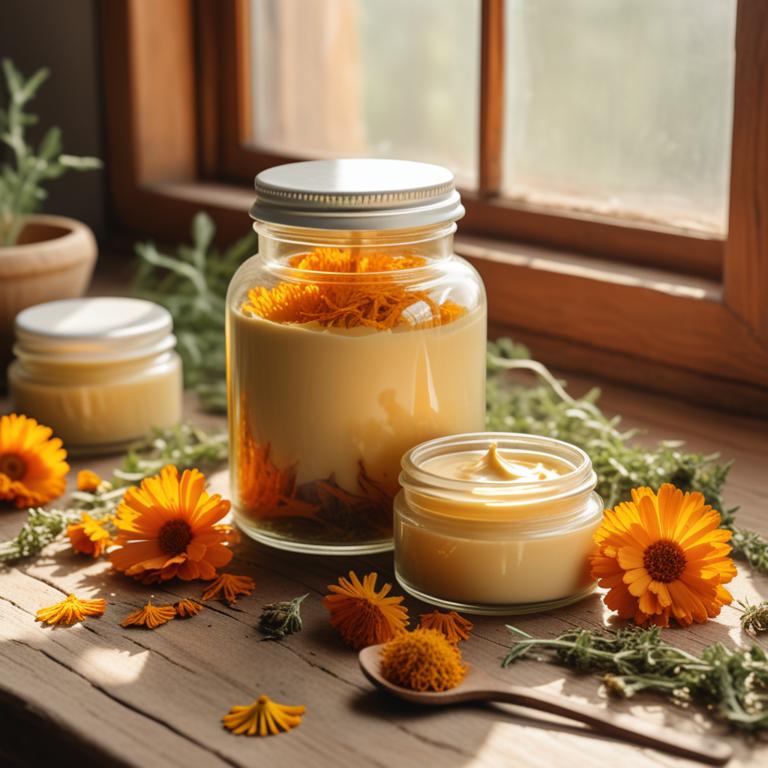
Calendula officinalis creams have been traditionally used to treat edema due to their anti-inflammatory and antiseptic properties, which help to reduce swelling and promote healing in affected areas.
The bioactive constituents of Calendula officinalis, such as triterpenoids and sesquiterpenes, have been shown to exhibit potent anti-inflammatory and antioxidant activities, which contribute to its therapeutic effects.
By applying Calendula officinalis creams to the affected area, individuals can experience reduced inflammation, improved circulation, and enhanced tissue repair, ultimately alleviating the symptoms of edema.
The benefits of using Calendula officinalis creams to treat edema include reduced swelling, improved skin health, and enhanced overall well-being.
Related Study
According to "Journal of ethnopharmacology", Calendula officinalis creams for edema may be beneficial due to their ability to stimulate the proliferation and migration of fibroblasts at low concentrations, such as 10 microg/ml, which can aid in wound re-epithelialization and potentially alleviate edema symptoms.
8. Hamamelis virginiana creams
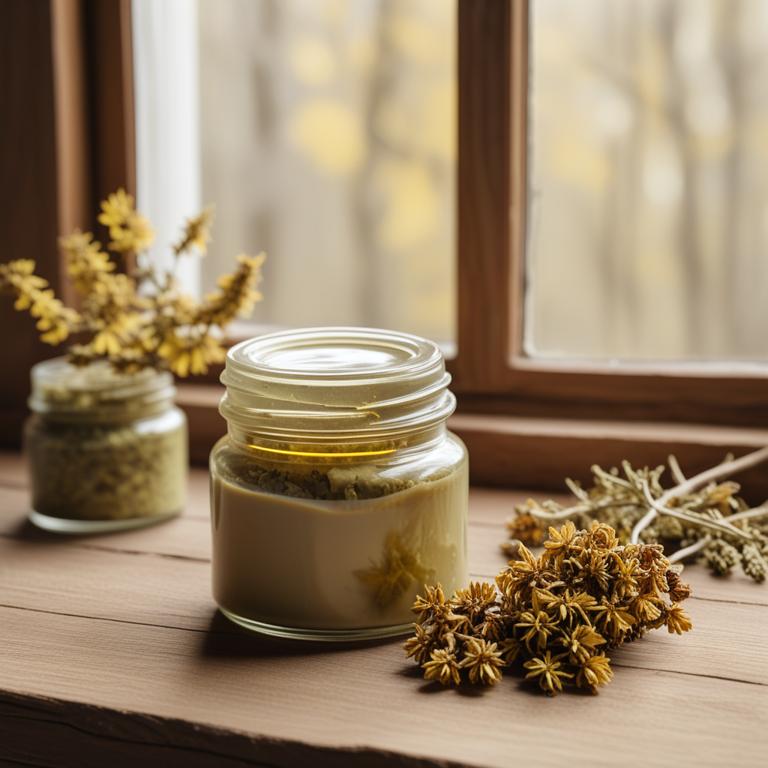
Hamamelis virginiana creams have been used for centuries to treat edema, a condition characterized by swelling due to fluid accumulation in the body.
The anti-inflammatory and antiseptic properties of this herbal preparation help to reduce swelling and promote healing.
The bioactive constituents, such as tannins, flavonoids, and phenolic acids, have been found to have antioxidant and anti-inflammatory effects, which contribute to the treatment of edema.
The benefits of using Hamamelis virginiana creams to treat edema include reduced swelling, improved circulation, and accelerated healing, making it a popular natural remedy for this condition.
9. Urtica dioica creams
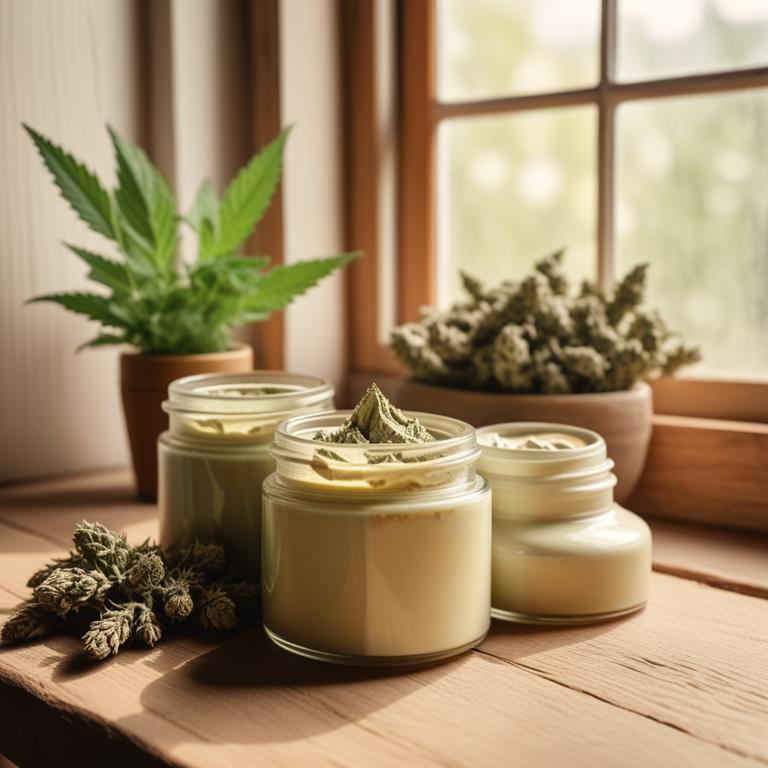
Urtica dioica creams, derived from the leaves of the stinging nettle plant, have been used to treat edema, a condition characterized by swelling caused by excess fluid retention.
The anti-inflammatory and antioxidant properties of Urtica dioica creams help to reduce swelling and alleviate pain associated with edema.
The bioactive constituents, including flavonoids, phenolic acids, and triterpenoids, contribute to the anti-inflammatory and antioxidant effects of the creams, making them an effective treatment option for edema.
By reducing inflammation and promoting the removal of excess fluid, Urtica dioica creams provide relief from the discomfort and pain associated with edema, offering a natural and safe alternative to conventional treatments.
Related Study
According to "Molecules (Basel, Switzerland)", Urtica dioica creams for edema may be beneficial as the Urtica dioica extract showed anti-inflammatory properties and moderate antioxidant properties, which can help in wound healing and potentially reduce edema.
10. Hypericum perforatum creams
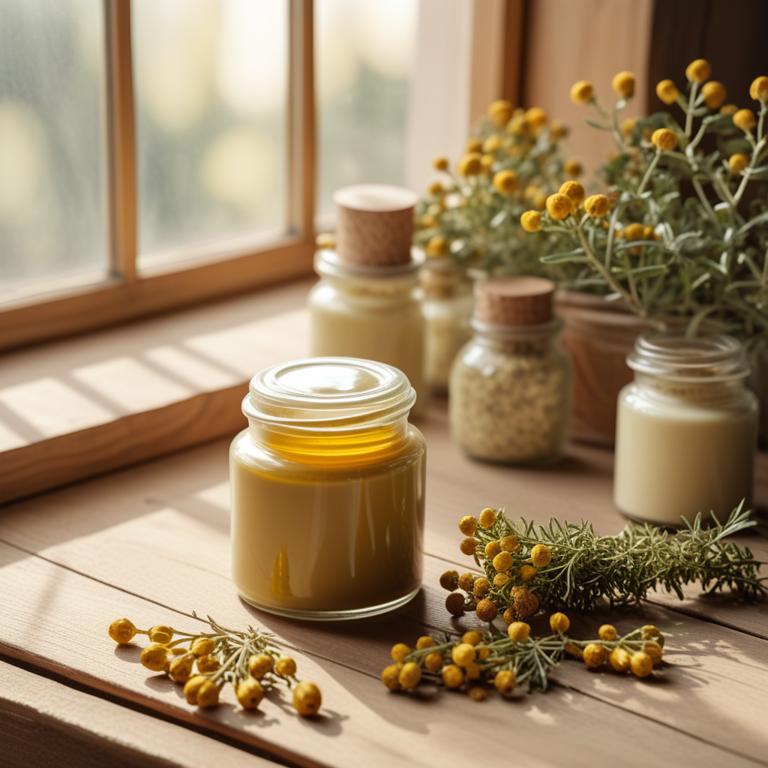
Hypericum perforatum creams, also known as St. John's Wort creams, have been traditionally used to treat edema, a condition characterized by swelling due to excess fluid accumulation.
The anti-inflammatory and antiseptic properties of Hypericum perforatum help to reduce swelling and promote wound healing, making it an effective treatment for this ailment.
The bioactive constituents of Hypericum perforatum, including hyperforin, hypericin, and flavonoids, have been found to exhibit potent anti-inflammatory and antioxidant activities, which contribute to its therapeutic effects.
The benefits of using Hypericum perforatum creams to treat edema include reduced swelling, pain relief, and improved wound healing, making it a natural and effective alternative to conventional treatments.
Related Study
According to "The Journal of pharmacy and pharmacology", Hypericum perforatum creams for edema have shown a dose-dependent reduction in Croton-oil-induced ear oedema in mice, with the lipophilic extract being the most active among the tested preparations.
11. Silybum marianum creams
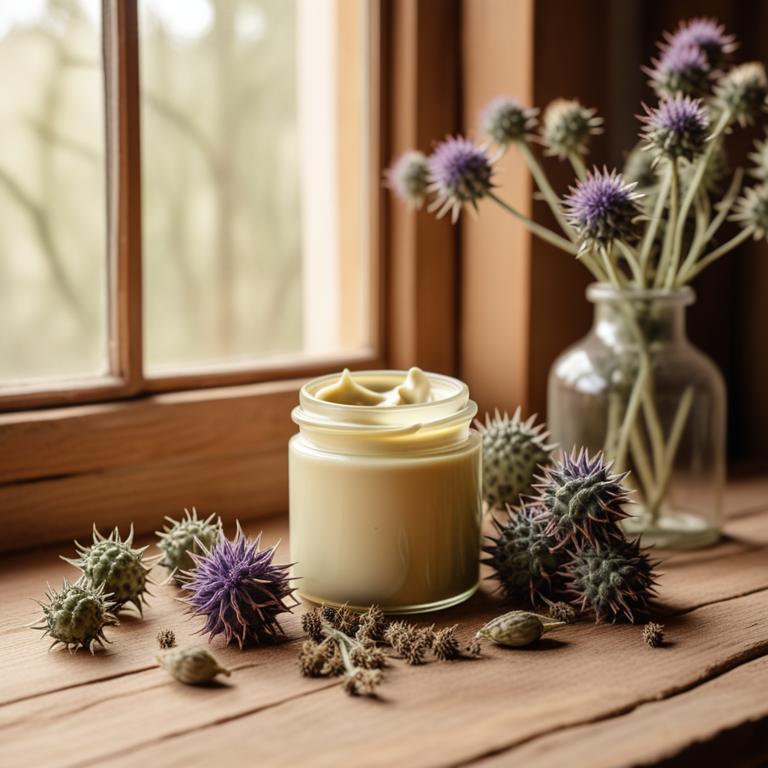
Silybum marianum creams, derived from the milk thistle plant, have been traditionally used to treat edema due to their anti-inflammatory and antioedematous properties.
The bioactive constituents present in these creams, such as flavonoids and silymarin, help to reduce fluid accumulation in tissues and alleviate edema symptoms.
The saponins and cardenolides in Silybum marianum creams also exhibit antioxidant and anti-inflammatory activities, which contribute to their therapeutic effects in treating edema.
By reducing inflammation and fluid retention, Silybum marianum creams provide relief from edema symptoms, making them a valuable herbal remedy for this condition.